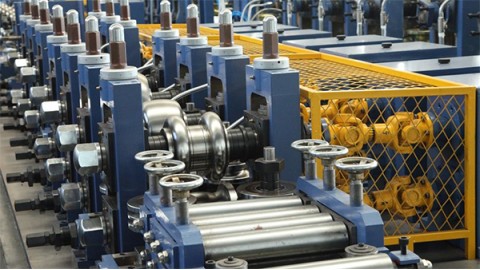Top 10 Cutting Tools Manufacturers and Companies
Cutting tools are the foundation of modern manufacturing. These tools remove material from a workpiece through shear deformation. Industries like aerospace, automotive, construction, and electronics rely on them. Precision engineering needs high-quality cutting tools to achieve tight tolerances and perfect surface finishes. This article covers top global manufacturers, new technologies, and key industry trends. It includes tools like drills, end mills, inserts, and saws. Material science is crucial for creating more durable and efficient tools.

Cutting Tools Basics
Cutting tools are classified by their material. Common materials include High-Speed Steel (HSS), carbide, ceramic, and Cubic Boron Nitride (CBN). Coatings like TiN (Titanium Nitride), TiCN (Titanium Carbo-Nitride), and AlTiN (Aluminum Titanium Nitride) improve tool performance. Tool geometry affects chip formation, heat dissipation, and tool life. Different designs exist for roughing, finishing, and high-speed machining. Coolant is often used to reduce heat and extend tool life. Rigidity, stability, and precision are vital when selecting a cutting tool.
Industry Innovations and Trends
The cutting tool industry constantly evolves. Smart tools with integrated sensors allow for real-time monitoring and predictive maintenance. Additive manufacturing creates complex tool geometries and custom designs. Nano-coatings and ultra-fine grain carbide push performance limits. There is a move towards dry and near-dry machining for environmental sustainability. New tools are developed for difficult materials like high-temperature alloys and composites. Digital twins and simulation software help optimize tool selection before machining begins. Artificial intelligence and machine learning predict tool wear and optimize cutting parameters.
Analysis of Top Global Manufacturers
Several companies lead the global cutting tools market.
Sandvik CoromantSandvik Coromant is a market leader in carbide inserts and multi-material solutions. They offer a vast range of products for nearly every machining application.
KennametalKennametal specializes in tools for aerospace and defense applications. Their Beyond Blast technology delivers coolant directly to the cutting edge.
Mitsubishi MaterialsMitsubishi Materials is known for innovation in indexable inserts and advanced coating technologies.
ISCARISCAR is recognized for its creative engineering solutions and strong modular tooling systems.
Sumitomo ElectricSumitomo Electric has a wide portfolio that includes carbide tools, diamond, and CBN products.
OSGOSG specializes in precision taps, drills, and end mills, with a particular focus on micro-machining applications.
KyoceraKyocera is a global innovator in ceramic and cermet inserts and has a significant manufacturing presence worldwide.
Selection Criteria and Considerations
Choosing the right tool requires careful thought. Material compatibility is the first step. You need different tools for steel, stainless steel, cast iron, non-ferrous metals, and exotics. You must also consider the operation: turning, milling, drilling, or threading. evaluate tools based on cutting speed, feed rate, and tool life for productivity. Machine compatibility is critical; the toolholder interface, RPM capacity, and rigidity must match. The required surface finish dictates the tool's geometry. For special applications like deep-hole drilling or high-speed machining, specific tools are needed. Always consider the supplier's technical support and expertise.
Applications and Case Studies
Cutting tools serve critical roles across industries. In aerospace, they machine titanium parts and carbon fiber composites. The automotive industry uses them for high-volume production and optimizing tool life. Mold and die making requires precision machining for complex shapes and high finishes. The energy sector needs tools for large components and tough materials in turbines. Medical device manufacturing relies on micro-machining for implants and instruments. The electronics industry uses precision tools for semiconductors and connectors. General manufacturing case studies often focus on optimizing workflow and reducing downtime.




